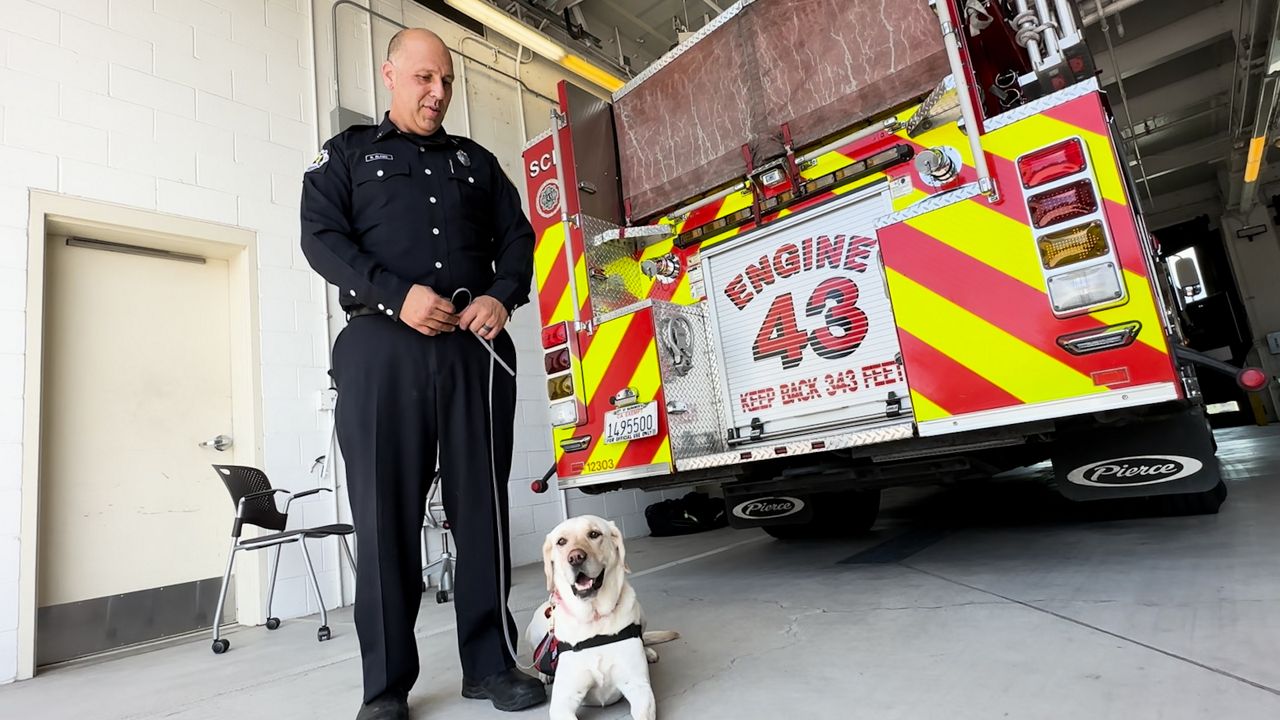SACRAMENTO, Calif. — When he was just starting out at the Sacramento Fire Department, 22-year-old Richard Alamo was not mentally prepared for the horrific things he would see while out on the job.
An early call that stuck with Alamo was when someone handed him a deceased baby.
“I remember being told, ‘Hey kid, you suck it up. You’re not supposed to feel. If you let these types of calls bother you, you’re not going to survive.’ Which is wrong because if you don’t have the courage to ask for help early in your career, those calls are going to affect you,” Alamo said.
Alamo says those calls got to him, and lead to him developing an alcohol abuse problem.
“Our brain doesn’t know that we wear a badge and a uniform. Our brain just knows that we’re human and we’re no different than any other human being. We also have feelings and we also react to what we see,” Alamo said.
Now a fire captain, Alamo says he was able to address his issues with the help of peer support from his fellow firefighters and is now 12 years sober.
Alamo is the behavioral health coordinator for the Sacramento Fire Department. He’s now in charge of helping his fellow firefighters deal with the stresses of the job.
“Within the behavioral health unit, we focus on education and awareness so reaching out to our members and letting them know that it’s okay to ask for help,” Alamo said.

Firefighters and other first responders are more likely to die by suicide than in the line of duty, according to a Ruberman Family Foundation study.
To help prevent more people from slipping through the cracks, State Senator John Laird authored SB 623, which will expand worker’s compensation access for first responders dealing with PTSD until 2032.
The current law will expire in 2025.
SB 623 is making its way through the Legislature with bipartisan support. It has passed through the Senate and is currently in the Assembly. However, the bill has been met with opposition from the California Coalition on Workers’ Compensation that believes more data is needed to see if the current law is working before expanding it to more first responders.
“Psychiatric injuries have been repeatedly used as a center of fraud and abuse in California’s workers’ compensation system, and the protections in existing law are there for a reason. Undermining those protections with a presumption without any evidence of a problem only serves to open the door to abuse and fraud,” stated a joint opposition letter from the CCWC and other coalitions.
Laird recognized the need for more data and says support groups are working to collect information on how the worker’s compensation has helped their members dealing with PTSD.
Senior Fire Chaplain Kevin Snider says the legislation is a critical resource in helping first responders receive the help they need.
“It can come up a year or two down the road triggered from another critical incident, so having those resources available for post-traumatic stress is super, super important,” Snider said.
Both Snider and Alamo sit on the same Sacramento Regional Behavioral Health Committee that has representatives from about a dozen different agencies in the Greater Sacramento Area. The committee meets once a month and discusses ways to improve the first responder’s mental health.
“Our unit has prevented a lot of PTSD claims because PTSD develops 30 days after an experience. It’s important to identify any symptom that the person is having in the first 30 days,” Alamo said. “Unfortunately, there has been members that have slipped through the cracks or that have not gotten the assistance or didn’t know something was wrong.”
The Sacramento Regional Behavioral Health committee is one of the only ones its kind in the state. The members hope to provide a blueprint on other fire departments to follow to better address firefighter’s behavioral health.
“Over time, we’ve seen that the need to take care of our mental health in additional to our physical health is crucial. PTSD when it first came out they would say oh that’s just military but now we are seeing it impacts everybody — even folks in the community, so extending those resources is crucial. Especially for us in the fire service,” Snider said.
Let Inside the Issues know your thoughts and watch Monday through Friday at 8 p.m. and 11 p.m. on Spectrum News 1.



?wid=320&hei=180&$wide-bg$)